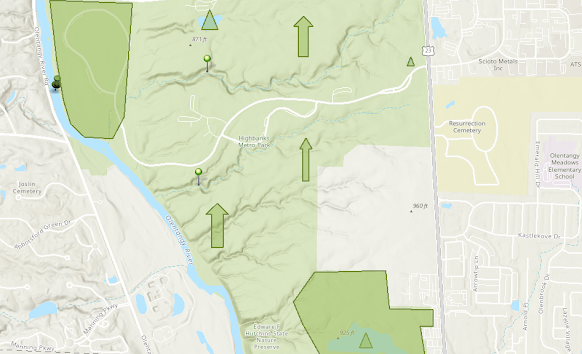Establishing a nonprofit in Ohio

1. Name Your Organization- The first step in creating a nonprofit is to choose a name. In the state of Ohio, the only requirement for naming a nonprofit is that it must be different from all others recorded by the Secretary of State.
2. Name Incorporators and Directors- This is where the leadership team is formed. In this case, the leadership will be the board of directors and officers. The state of Ohio requires that you have a minimum of three directors. The directors do not have to reside in the state or be members of the organization unless stated otherwise in the bylaws.
3. Appoint a Registered Agent- Ohio requires all nonprofit organizations to have a registered agent. The Registered agent can be an individual or company and be responsible for receiving all legal notifications for the nonprofit. This person or business is required to have a physical address in the state of Ohio.
4. File Ohio Articles of Incorporation- The cost of filing your Articles of Incorporation in Ohio is $99, and you can file online, by mail, or in person. It will take approximately three to seven days for your application to be accepted once you file online or by mail. You can expedite your filing with an additional $100 fee.
5. File an Initial Annual Report- Ohio does not require nonprofits to file an initial Annual Report. Nonprofits are required to file an annual report with the Attorney General’s office on the 15th of the fifth month following their fiscal year.
6. Apply for an Employ Identification Number- Once you have filed your Articles of Incorporation with the state, you will need to apply for an Employer Identification Number (EIN) with the IRS. This number will be used for tax filing and reporting and can be applied online, by mail, phone, or fax.
7. Hold Organization Meetings and Establish Nonprofit Bylaws- Your bylaws are a blueprint for your organization. They should be tailored to your organization’s needs and goals and define the roles of your board, members, staff, and more. Your first board meeting will be the time for your board to finalize and adopt your organization’s bylaws. This is also the time to create a conflict-of-interest policy, elect your board directors, choose the officers, and approve resolutions for opening a bank account and any other immediate needs.
8. Apply for Federal and Ohio State Tax Exemptions- As a nonprofit, you have two options to file, and they depend on the amount you expect to raise. Form 1023-EZ is for smaller organizations that do not expect to raise more than $50,000 for any of the first three years. f you are unable to file the EZ form, you must file Form 1023. The filing fee for Form 1023 is $600, and the turnaround for your letter of determination is three to six months. In addition to filing with the IRS, Ohio nonprofits must register with the Ohio Department of Taxation. Ohio Business Gateway is where your nonprofit can register, file, and pay your taxes. To register, you will need to have already received an IRS determination letter. In Ohio, most nonprofits are not required to pay the Commercial Activity Tax or state sales tax. To prove that you are exempt from the Ohio sales tax, you will need to fill out and bring STEC-B Sales and Use Tax Blanket Exemption Certificate when you purchase anything for your organization.
9. Apply for Ohio State Business Licenses- Other than a vendor license, Ohio does not require nonprofits to obtain statewide business licenses. Some counties or cities may have other rules, though, so be sure to check with your local government.
10. Register for Charitable Fundraising- As a nonprofit organization, you must register with the Ohio Attorney General’s office and file an annual report every year.
11. Create a Nonprofit Bank Account- Before soliciting funds, your nonprofit will need to open a nonprofit bank account. You will need a copy of your Ohio Articles of Incorporation, a copy of your bylaws, and your EIN. Some banks will also require you to bring a resolution from your organization’s board authorizing your incorporator to open the account.
12. Apply for 501(C)(3)- you will be able to apply for grants and grow your fundraising success in addition to being exempt from IRS income tax. 501(c) is the chapter of the Internal Revenue Code that regulates nonprofit organizations. Like others, you may be most familiar with 501(c)(3) nonprofits, including charities and foundations. 501(c)(3) nonprofits apply using Form 1023 or Form 1023-EZ.


Comments
Post a Comment